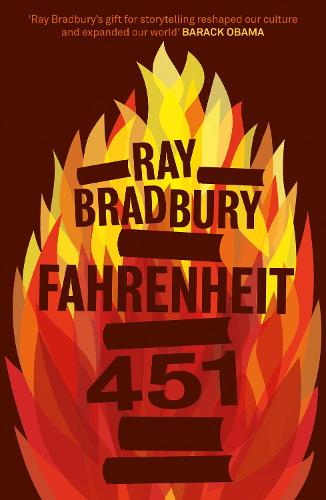The latest of my "great" books is Fahrenheit 451. It's one of those books that I probably read at some point, but can't remember for sure.
To be honest, I didn't care for it all that much. I have no issues with its commentary on censorship but I feel like it's conveyed in an incredibly simplistic way. It's not a long book, or hard to read. A central premise of the book is that all houses became fireproof at the same time that the government began banning books so firefighters had their function changed to starting fires to burn books That just struck me as completely absurd. So did the manner in which those fighting against the government were preserving the books
Bradbury conceived of a world where people were so pacified by mass media that it was only the logical next step to remove those things that cause conflict: books. I think it's obvious that, whatever it's evils, the advance of technology has not made it easier for the government to prevent the spread of information.
There was one aspect of the book that did touch upon something occurring today, but in a very different way than Bradbury imagined. The government lets the populace know that they are on the verge of going to war, but they are so wrapped up in themselves and their programs that pretty much nobody cares. Writing less than a decade after the conclusion of WWII, the concept must have seemed like pure fantasy even as he wrote about it. The US is currently involved in a number of armed conflicts at incredible expense and with devastating impacts to the other country. These generally receive no mention in the news after they've been going for a while. They've faded to simply existing as a background fact for the United States.

No comments:
New comments are not allowed.